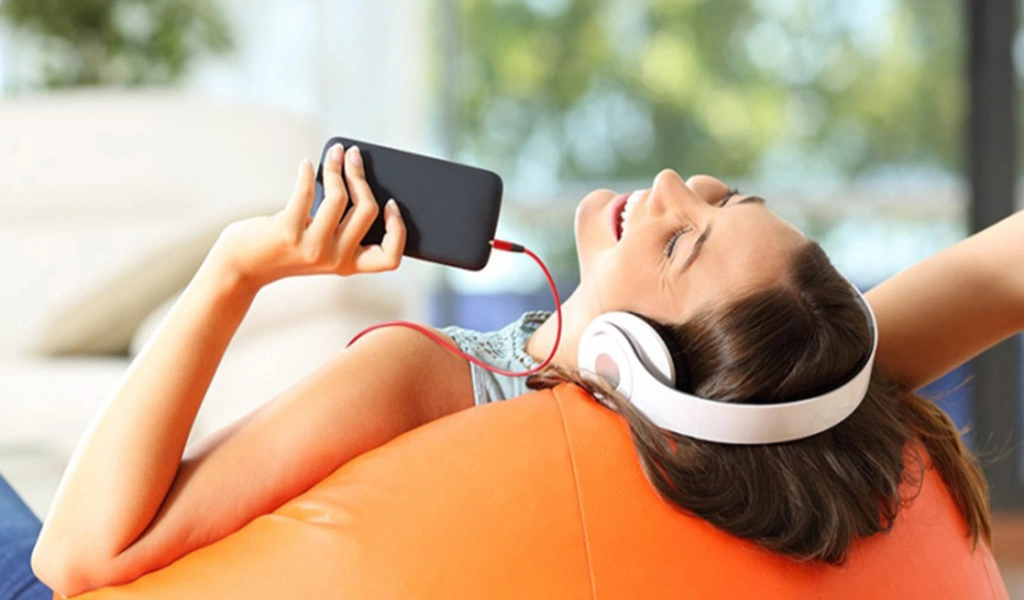In the contemporary digital landscape, we find ourselves surrounded by an ever-expanding array of devices and technologies that deliver audio content to our ears.
While these devices provide convenience and entertainment, they also carry potential risks to our auditory health. Noise-induced hearing loss is a significant concern, and it’s essential to implement measures to safeguard your hearing in this digital age.
Regular Hearing Evaluations
Regularly taking a hearing test performed by an audiologist can serve as an early detector of impending hearing loss. By monitoring your hearing health, you can take pre-emptive steps to thwart further deterioration and explore protective hearing measures.
Employ Volume Limiting Features
Many modern devices, such as smartphones and tablets, are equipped with integrated volume-limiting features. These functions enable you to set a maximum volume level, preventing inadvertent exposure to excessively loud sounds. Activate this feature and establish a safe volume threshold to protect your hearing.
Utilize Hearing Protection
In scenarios where you anticipate exposure to loud noises, wearing hearing protection is imperative. Whether you’re attending a live concert, working with power tools, or even engaging in lawn maintenance, invest in high-quality earplugs or earmuffs designed to diminish noise exposure.
Exercise Caution with Earbuds and Headphones
In-ear headphones (earbuds) and over-ear headphones can channel sound directly into your ears, heightening the potential for hearing damage when used inappropriately. Whenever possible, opt for over-ear headphones, as they generally pose a lower risk of hearing impairment compared to earbuds. Additionally, keep the volume at a moderate level.
Employ Noise-Canceling Headphones
Noise-canceling headphones can be a valuable investment. By mitigating external background noise, these headphones enable you to listen at lower volumes without sacrificing audio quality. This not only preserves your hearing but also enhances your listening experience.
Maintain a Safe Distance
When participating in events featuring loud music or utilizing noisy equipment, endeavor to maintain a secure distance from the source of the sound. The farther you are from the source, the lower the intensity of the sound reaching your ears.
Adjust Sound Settings
Modify the sound settings on your devices to establish a safe listening environment. Tweaking bass and elevating treble can render audio clearer at lower volumes. Experiment with different settings to discover the optimal balance between sound quality and hearing protection.
Constrain Daily Headphone Usage
Set a threshold on the duration you devote to using headphones each day. Prolonged exposure to headphones or earbuds can elevate the risk of hearing damage. By delineating limits, you can reduce your overall noise exposure.
Monitor Sound Levels
Employ smartphone apps or dedicated sound level monitoring devices to assess the noise levels in your vicinity. This assists you in recognizing when sound levels approach potentially perilous thresholds, allowing you to adopt requisite precautions.
Augment Your Knowledge and Share
Grasping the perils of noise-induced hearing loss is of paramount importance. Expand your understanding of safe listening practices and share this knowledge with your family and acquaintances. Encouraging others to safeguard their hearing can have a beneficial impact on a broader scale.
Choose Hearing-Friendly Devices
When procuring audio equipment, contemplate devices engineered to provide secure listening experiences. Search for headphones and earbuds featuring embedded volume-limiting functions or those attested as benign for auditory health.
Be Cautious in Ear Care
Evade the insertion of foreign objects like cotton swabs into your ears. Cleansing your ears with extraneous items can force earwax deeper into the ear canal, potentially leading to earwax accumulation or impairment of sensitive ear structures.
Acknowledge Premature Indications of Hearing Damage
Exercise vigilance to recognize preliminary signs of hearing damage, such as tinnitus (ringing in the ears) or a sense of muffled hearing. If you encounter these symptoms, it’s imperative to lessen your noise exposure and seek professional assistance.
Sustain a Healthful Lifestyle
Particular lifestyle factors, including a balanced diet, routine physical activity, and proficient stress management, can contribute to comprehensive ear health. A wholesome lifestyle may reduce the risk of auditory-related issues.
Hearing preservation in the digital age is essential for maintaining your auditory health. Noise-induced hearing loss is avoidable, and by adhering to these practical recommendations, you can diminish your likelihood of auditory damage stemming from digital devices and noisy environments.
Prioritizing safe listening practices and staying well-informed regarding hearing protection can ensure that you continue to savor the symphonies of life for years to come.
SEE ALSO: How To Properly Apply Sunscreen To Safeguard Your Skin From Harmful UV Rays
⚠ Article Disclaimer
The above article is sponsored content any opinions expressed in this article are those of the author and not necessarily reflect the views of CTN News






